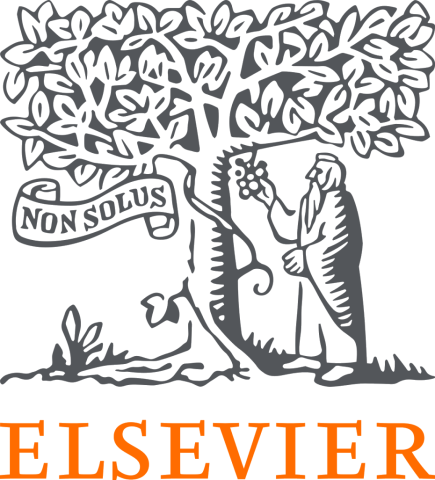
How universities can help rebuild trust in science
The crisis of confidence in science has deep origins. The answer to regaining traction is compelling stories and the skills to tell them beyond the academy, writes Bartłomiej Knosala
Research management
Sponsored by

Elsevier helps researchers and healthcare professionals advance science and improve health outcomes for the benefit of society.

Around the middle of the 20th century, Western societies began to face a systematic undermining of trust in science. At that time, the flashpoint of many discussions was the question of the harmfulness of cigarettes and other nicotine products. As scientists became more and more certain about the health risks of smoking, a sceptical voice began to emerge more strongly in the media. Television programmes and newspaper articles questioned findings that smoking was linked to lung cancer, challenged the notion that nicotine was an addictive substance and negated the claim that so-called second-hand smoke was also harmful.
Today, historians of science can quite easily identify the causes of this anti-scientific aggravation. The big tobacco companies – fearing that science’s findings would lead to lawsuits and loss of profit – launched large-scale disinformation campaigns. In 1953, the tobacco industry hired the PR firm Hill & Knowlton, which began the process of producing doubt for hire. Manufacturing doubts to order (sometimes the term “product defence industry” is used) involves a specific communication strategy emphasising the lack of 100 per cent certainty of scientific findings or pointing out the alleged controversial nature of certain scientific expert opinions.
- Work like a scientist, don’t sound like one
- How to publish responsible reproducible research
- Open research is a tough nut to crack. Here’s how we can get started
One of the first documents resulting from the production of doubt to order was the Frank Statement, published in 1954 (thanks, of course, to the efforts of Hill & Knowlton). This document questioning the links between cigarette smoking and cancer risk was published in 448 newspapers, reaching some 43 million people, and widely reported on radio and television. The strategy was so successful that as recently as 1992 25 per cent of American men and women still did not believe that smoking harmed health, and in 2007, 25 per cent of Americans were not convinced that we had scientific evidence in favour of the thesis that smoking can lead to death.
The tobacco industry’s strategy in producing doubt to order set a certain standard. Similar methods and arguments were used by actors minimising the problem of acid rain, the harmfulness of asbestos, the credibility of the thesis that freons (CFCs) have a negative impact on the ozone layer, and the anthropogenic nature of global warming. Robert Brulle, an American sociologist, has estimated that about $900 million (£775 million) flows into the accounts of climate change denialist organisations each year.
How to boost public trust in science
So what can we scientists do to increase confidence in science?
First, we cannot be passive. In a world where the brutal game of economic and political interests is played, the truth does not come out on its own. The public hears those voices that are the loudest and recognises those beliefs that are clothed in an attractive form.
Naomi Oreskes and Erik Conway, examining the causes of the climate policy fiasco, point to two mistakes of academia. The first is related to the experts’ lack of communication competence. The experts did not understand the functioning of the mass media. They were convinced that speaking in academic circles, publishing in specialised scientific journals and issuing statements in scientific societies would be enough for governments, corporations and ordinary citizens to start making pro-climate changes. Such a belief has turned out to be an illusion. Knowledge does not automatically transform into power. For knowledge to start changing the world, it needs an attractive form and a huge commitment behind it.
Here, the second mistake of academia can be pointed out. It is the belief that truth will unveil itself, that truth exists as a kind of eternal idea that everyone would have access to if only they used the right intellectual tools. Based on such philosophical beliefs, experts felt no obligation to participate in time- and energy-consuming debates and disputes. They believed that it was enough to be patient and wait for the truth to reveal itself.
The academy needs to stop talking to itself
Important lessons can be learned from this story about how academia can help build trust in science. The first conclusion is that academia needs to stop talking to itself. How can this be done?
First and foremost, scientists need to rethink their social role. Conducting scientific research and publishing in scientific journals is extremely important, but it is insufficient these days. The creation of reliable scientific expertise and basing policy decisions on it has become crucial to securing a stable future for our planet. At the same time, the scale of disinformation attacking science has perhaps never been so great.
In creating bridges between science and society, scientists can influence the world we live in in a positive way. To achieve this positive impact, however, they must learn the principles of effective communication. And for this they need the help of the academy.
Introducing science communication courses into curricula should be the first step. Learning how to communicate effectively and create compelling stories has been a staple of teaching in Western culture for centuries. Today, the academy faces the task of returning to its roots and adapting the art of rhetoric to suit new challenges – to create a model for the education of effective scientific communication.
The power of stories
At the time of the most heated discussions about vaccination for Covid-19, a story about winter tyres began to circulate on the Polish internet. Groups sceptical of the vaccination made several accusations, with questions about effectiveness mixed in with the most implausible conspiracy theories. The author of the winter tyres story, using the principle of analogy (a principle belonging to the classic repertoire of rhetorical tools), built a convincing picture in which the justifications used by Covid-19 vaccine refusers were used to justify their refusal to use winter tyres. The effect is comical, but at the same time shows what power properly arranged stories can have.
What we can learn from the winter tyre story
The winter tyre story is a useful illustration of how values are linked to misinformation. It goes like this: I refuse to put on winter tyres because it’s my car, my choice, my freedom. The effectiveness of winter tyres is not proven outside of studies conducted by manufacturers (surprising). My neighbour had an accident after fitting winter tyres. Some people have three sets of winter tyres; this proves their ineffectiveness. We don’t know what they are made of. The giants (tyre manufacturers) scare us with winter to get rich. Besides, it’s the manufacturers who invented snow and spread it at night while you sleep. If I have tyres, the government can track me in the snow. Learn, open your eyes, stop being sheep. This year I say no to winter tyres!
At the end of the day, scientists are only human; they can be wrong and make mistakes. What makes scientific activity so extraordinarily effective in transforming our world are strict regulations designed to provide reliable, repeatedly proven data, concepts and theories.
Scientists must possess the skills to turn this dry data into their own compelling stories.
Bartłomiej Knosala is a professor in the department of applied social science in the Faculty of Organization and Management at Silesian University of Technology, Poland.
If you would like advice and insight from academics and university staff delivered direct to your inbox each week, sign up for the Campus newsletter.
Research management
Sponsored by


